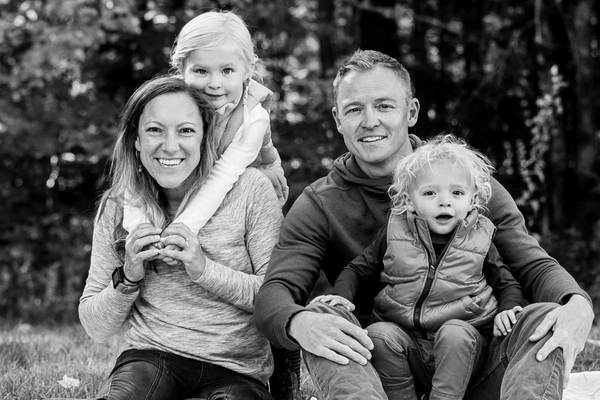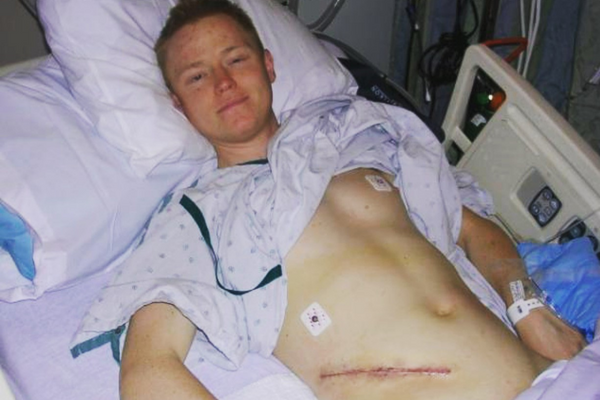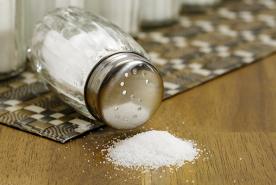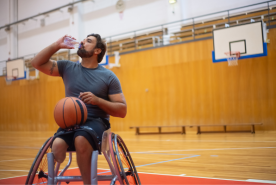September 07, 2022
In 2007, Ryan Shay, a professional athlete, collapsed during the US Olympic Marathon trials and later passed away from heart failure related to a preexisting condition. His passing sent shockwaves throughout long-distance running communities worldwide as many didn't think this could happen to such an active, fit person.
One of those runners was Coby Jacobus who saw this tragedy as a wake-up call to stop ignoring symptoms he has been experiencing for more than ten years.
Coby's symptoms
Coby entered college full of energy in 1998 and began running at the collegiate level. During a mandatory physical, doctors found more protein in his urine than normal but attributed it to his running routine and high-protein diet. As the years passed, he began experiencing troubling symptoms after bigger races, especially if he had a cold.
"I would urinate blood and I get acne all over my legs," Coby said. "By the end of college, I really started to notice a big decline in athletic performance and was waking up with soaking wet bed sheets. My ankles were swollen but my buddies said I was just getting old."
After college, Coby avoided going to the doctor, but his performance and overall health declined. It wasn't until the US Olympic Marathon trials in August 2007 that he realized something could be seriously wrong.
"There was a lot of talk in running communities about how when you're so active and training at a pretty high level, you tend to take your health and your fitness for granted," said Coby. "You tend to not go to the doctor over little things. I thought maybe I should go see someone cause I don't feel that great. That race really inspired me."
Coby's kidney disease diagnosis
A few days after the marathon trial, Coby reached out to his sister, who was in nursing school. She took his blood pressure and was astounded to see how high it was. After hearing about his swelling, puffiness, and fatigue symptoms, she insisted he go to a doctor. Colby's sister was right to think something was wrong: He received his kidney disease diagnosis in November that year.
"They did blood work and my creatinine level was through the roof. All my basic kidney numbers were in the gutter," said Coby. "I was sent to a nephrologist and that was scary. It was the first time someone mentioned organ transplant to me, and I remember being in tears thinking like my life was over."
Coby's wife and parents rallied behind him, making sure he received the best care possible.
"Being an athlete, I thought, I'm just going to will myself to be healthy again and I'm going to train myself out of this and run it out of my body. That did not work. I was told I'd need a donor ten years down the road. It seemed like something that would never happen to me," said Coby. "I was lucky. My mother and my now wife did a lot of the homework to find the best hospitals."
Unfortunately, Coby's health deteriorated quickly, and his parents decided to begin the kidney donation process.
"I was ice skating quite a bit at the time and my feet wouldn't fit into my ice skates. I was pretty down in the dumps and a little bit depressed because I didn't know what the outcome was going to be," Coby said. "My mom was a match at first, but she found out they weren't going to use her as a donor because she was too little."
Coby's kidney transplant

Luckily, Coby's father was also a match but had to lose weight and lower his blood pressure to undergo surgery.
"My mother came home and he was sitting on a couch. She lost it on him. We joke now that she would have tied him to the car and dragged him around the neighborhood to lose weight," Coby said. "Then, in April 2008, I was in the Sierra Nevada mountains backcountry skiing and felt terrible. I came back, was in the hospital for a few days, and my doctor came in and said, 'Either we put you in surgery for dialysis or you get an organ transplant.'"
Everything moved quickly after this as Coby's healthcare team and his parents were determined to keep him off dialysis. Doctors cleared his father for surgery within two weeks, and it was a complete success. Coby woke up and saw immediate differences - his skin looked healthier, he lost the acne, and the puffiness was gone.
For the first time in years, Coby could truly run again: "It was amazing. I felt great running as long as I was hydrating. I felt like a million bucks."
"If you're debating being an organ donor, give it real consideration because knowing someone who's donated, it hasn't affected my dad's quality of life at all," Coby said. "He says, 'If you had knocked me out and woke me up with no pain, I wouldn't even know I donated a kidney.'"
Considering being a kidney donor? We applaud you! Get started.
Sharing his story with young athletes
When Coby was in high school, his running coach was his biggest mentor. Now Coby is a coach, hoping to return that gift with a unique flair: He's supportive, pushes students to do their best, and explains the importance of listening to your body.
"My doctors think strep throat was an underlying cause because I was diagnosed with IgAN, an autoimmune issue that damages the kidney’s filters and can cause kidney disease. I remember having a sore throat in high school for two years but I never went to the doctor," Coby said. "I used to be the kind of guy who never went to the doctor. Now, anytime I'm coaching an athlete, talking to a teacher about strep throat, or see a kid has a weird symptom I tell them to go to the doctors and ask for bloodwork."
Through Coby's mentorship, these students will grow into adults who pay attention to their bodies, notice when things are off, and take action before things get worse.
Do you want to spread kidney disease awareness and make a difference in people's lives, like Coby? Share your story with us - it might be the one that helps someone else with kidney disease

















